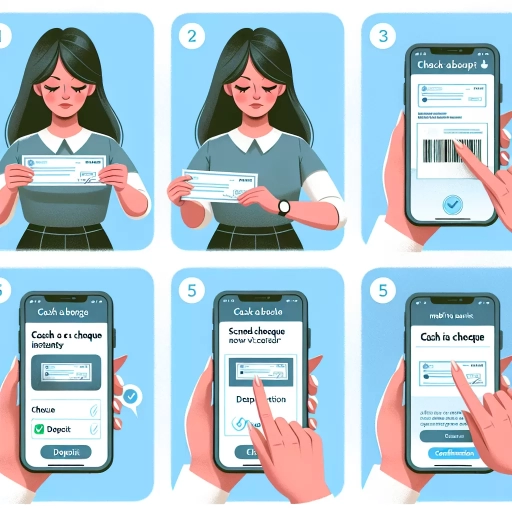How To Cash A Cheque Instantly

Understanding the Basics of Cashing a Cheque
The Definition of a Cheque
A cheque is a document used in financial transactions that instructs a bank or a credit union to pay a specific amount of money from a specified checking account to a particular person. This paper instrument is a vital component of business and personal finance, facilitating the smooth and secure transfer of funds. The balance from a check is typically drawn from the account owner's account and transferred to the recipient's account for their usage.
Identifying Genuine Cheques
Before cashing a cheque, it's crucial to confirm its authenticity. A genuine cheque will have specific features such as the name of the bank, the account owner's details, and a unique cheque number. Additionally, the cheque will include the issue date, the payee's name, and the written and numerical amount to be paid. Verification of these features is essential to avoid becoming a victim of cheque fraud, which involves the use of counterfeit, forged, or altered cheques, likely resulting in financial losses.
When Can A Cheque Be Cashed?
Typically, a cheque can be cashed upon receipt. However, some cheques, called post-dated cheques, have a future date written on them and cannot be cashed until that date. It's essential to take note of the cheque's date before attempting to cash it to avoid any inconveniences. Also, bear in mind that banks might have different policies concerning cheque clearances. Some banks clear cheques within a few hours, while others may take one to two business days.
How to Cash a Cheque Instantly
Direct Cheque Cashing At The Issuing Bank
One of the most straightforward methods of cashing a cheque is taking it directly to the issuing bank. Then, you'll be asked for some identification to prove your identity. After identity verification, the bank officer will cash the cheque instantly assuming the cheque maker has sufficient funds in their account. This option is often free of charge or carries low fees. However, this option's practicability depends on the proximity of the bank and its operating hours.
Using Check-Cashing Stores
Convenience and speed are the significant advantages of using check-cashing stores. These establishments specialize in cashing different types of cheques instantly. However, they usually charge a percentage of the cheque's value as a fee. This option is handy for those without a bank account or who need to cash a cheque outside of regular banking hours.
Mobile Deposits
Mobile check depositing services are popular for their convenience and speed. Most banks' mobile apps allow users to deposit cheques by capturing a photo of both the front and back of the cheque. The funds are typically available within minutes, although some banks might hold the funds for a couple of days for verification purposes. Therefore, always read the deposit policies of the bank or credit union.
Avoiding Common Cheque-Cashing Pitfalls
Fraudulent Cheques
Cashing fraudulent cheques can have severe financial and legal consequences. That's why it's essential to ensure the cheque is genuine before trying to cash it. Be wary of cheques received from unfamiliar sources, particularly if the amount is more significant than expected. Also, look out for indications of forgery such as erasure marks, a missing bank logo, or discrepancies in the written and numerical amounts.
High Cashing Fees
While check-cashing stores and payday loan retailers provide quick and easy services, their fees can be exorbitant. These establishments often charge a percentage of the cheque's total value, meaning the larger the cheque, the higher the cost. It's wise to be aware of the fees involved before using these services, and where possible, consider cheaper alternatives like your own bank or credit union.
Losing Your Cheque
The risk of losing a physical cheque is another common pitfall in the cheque cashing process. Should the cheque get lost, you would need to request a stop payment at the bank and ask for a new cheque, which could lead to delays and additional fees. To avoid this problem, consider using electronic methods of cheque depositing which are safer and quicker.